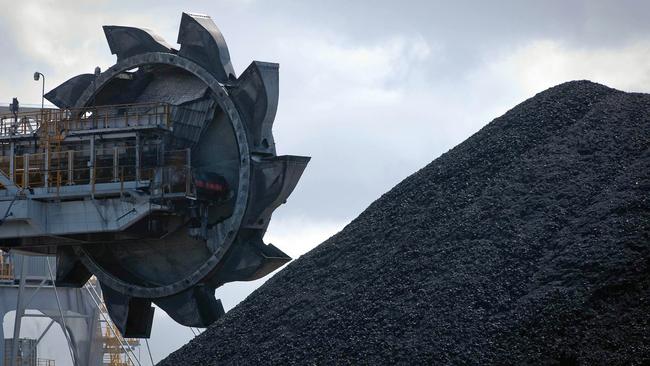US coking coal in high demand due to Beijing’s ban on Australian coal, says Coronado boss
Chinese steel mills and traders are still scrambling to secure cargoes of high quality US coking coal to replace Australian exports.

Chinese steel mills and traders are still scrambling to secure cargoes of high quality US coking coal to replace Australian exports, according to Coronado Global Resources boss Gerry Spindler, as US miners capitalise on parlous relations between Canberra and Beijing.
Coronado said on Tuesday it expects China’s bans on Australian coal to last until at least 2022, with the company lifting production from its US coking coal mines to take advantage of high prices into Chinese steel mills.
Coronado released its half-year financial report on Tuesday, with revenue up 12 per cent for the year on improved pricing for its US coal and a return to pre-Covid production levels.
That was offset by the price hit for coking coal from its Curragh operations in Australia which, while not reliant upon Chinese sales in the past, were still hit by the falling price for Australian coal brought on by Beijing’s import bans.
Coronado sold about 30 per cent of its US-produced coking coal into contracts cut in the US markets in the first half of the year, preferring to lock in a price for a portion of its output as the company renegotiated its debts.
But Mr Spindler said strong demand from China had prompted a rethink of its sales mix, with the company looking to capitalise on strong spot market pricing as Chinese steel mills look to replace high quality Australian coal with exports from North America.
Mr Spindler said Coronado’s US operations were constantly fielding calls from Chinese buyers looking to secure cargoes at a discount, as mills and traders scramble to secure coking coal in a hot market.
“Every day somebody will call up with relationships in China, and offer you a deal if you can meet their price. Whether those are real, or whether they‘re not, is a real question,” he said.
But the strength of Chinese demand meant Coronado would look to preference spot sales in the second half of the year, he said.

“This year we will probably not commit a full 30 per cent to the domestic market. We’re probably focused more on the export. And that will change the dynamics and the price profile to next year, for the better.”
But Mr Spindler said demand from China was still pushing up prices for US coal, even though the market restructure that hit the price received by Australian producers had largely taken its course.
“A combination of both strong global steel demand and tight supply has driven prices higher with the premium metallurgical coal FOB index prices in Australia and the US both above $US200 per tonne in July,” the company said.
“Coronado is poised to realise the benefits of these higher prices in the third and fourth quarters due to an on-average three-month pricing lag between contracting and delivery.”
The company booked a $US96.1m loss for the half-year, a 22 per cent improvement on the $US123.2m loss in the first half of 2020.
Coronado finished June with net debt of $US236.6m, down from $US404.9m a year ago.
“Coronado envisages the import restrictions on Australian coal to continue for the remainder of 2021,” the company said.
Mr Spindler said it was difficult to predict when relationships between Canberra and Beijing would thaw to the point that China would resume buying Australian coal again, but he said the disruption to coal markets would eventually have to resolve themselves.
“I think that, frankly, the dramatics and the tensions around the Australia-China relationship eventually for a whole lot of reasons will have to resolve themselves,” he said.
“As Wood Mackenzie points out that, while the demand for metallurgical coal may modify or ameliorate, the demand for ocean going metallurgical coal continues to remain steady. So as long as I can get whatever product, I have on a boat. I‘m going to have a market.”
Coronado shares closed up 0.5c to 96.5c on Tuesday.




To join the conversation, please log in. Don't have an account? Register
Join the conversation, you are commenting as Logout